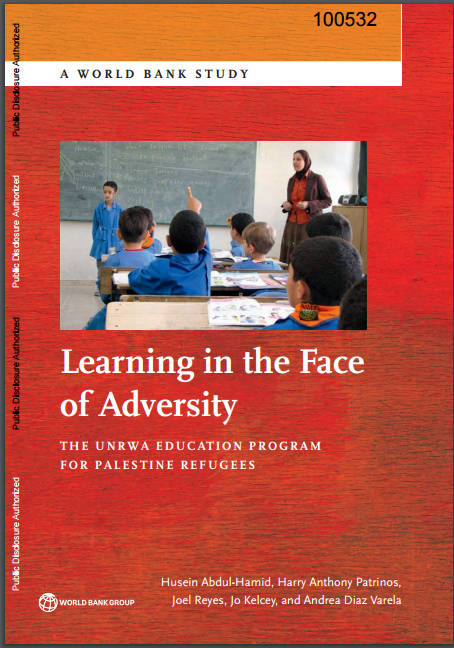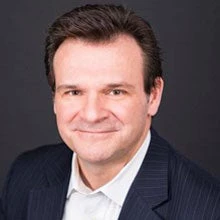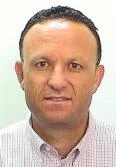
As the world struggles to cope with the stream of refugees coming out of Syria, there is an urgent need to advance education opportunities. This is not to just thwart radicalization, as United Nations special envoy for global education Gordon Brown argues, but to ensure that we invest in building refugee children’s human capital.
Lessons on how to provide an education that builds human capital actually comes from the region, including in Syria.
Palestinian refugees are achieving higher-than-average learning outcomes in spite of the adverse circumstances they live in. The United Nations Relief and Works Agency (UNRWA) for Palestinian refugees in the near east – operates one of the largest non-governmental school systems in the Middle East. It manages nearly 700 schools, 17,000 staff, and educates more than 500,000 refugee students a year.
UNRWA is a regional UN agency with a quasi-state function to provide basic education and other services to almost five million registered Palestinian refugees in the West Bank and Gaza, Jordan, Lebanon and Syria. UNRWA began operations in 1950 as a temporary “stopgap” measure to cater to refugee needs. It still functions to this day.
UNRWA students outperform public schools in Jordan and the West Bank and Gaza by a year’s worth of learning. This is contrary to what may be expected from a resource-constrained administration serving refugee students who continually face a multitude of adversities. This is particularly noteworthy given the disadvantages UNRWA schools must address.
One would expect that socioeconomic status or parental education would be highly associated with performance, as documented in the education literature. However, UNRWA students outperform their peers in public schools, in spite of their socioeconomic disadvantages. Refugee students, for example, come from much less educated households.

One would also expect that teachers’ academic qualifications would be associated with student performance, but this is not the case. Yet students at UNRWA schools outperformed students at public schools despite having teachers with the same years of service and degrees completed as their counterparts in public schools.
In our report, Learning in the Face of Adversity: the UNRWA Education Program for Palestinian Refugees, we highlight what makes the system work as well as it does. The program I will argue here also provides lessons for fulfilling the educational aspirations of the refugee children worldwide.
How do UNRWA schools continually and consistently outperform public schools?
This is achieved as a result of the way these schools recruit, prepare, and support teachers; instructional practices and pedagogy in the classroom; and because of school leadership, accountability, and mutual support.
This has created a distinguished learning community centered on the student. For example:
- UNRWA selects, prepares, and supports its education staff to pursue high learning outcomes;
- Time-on-task is high in UNRWA schools, and this time is used more effectively than in public schools;
- UNRWA schools have a world-class assessment and accountability system; and
- UNRWA schools are part of a wider community and culture of learning that supports the child and ensures that the education received is meaningful and relevant.
UNRWA is successful at attracting and recruiting high-quality teachers. UNRWA’s teacher colleges attract the best high school graduates to enroll free of charge and with guaranteed employment after completion and upon meeting criteria. Once hired, UNRWA teachers are provided with explicit standards regarding what students must know and be able to do. They are also guided on how to achieve these standards through support by well-qualified, well-prepared, and experienced school principals.
The UNRWA system produces superior results while having fewer management layers. Schools are more accountable for student outcomes than are public schools. UNRWA has a world-class assessment system. Assessments are a priority and are disseminated to teachers (to inform lesson plans and instructional practices) and to policy makers. Teachers are also required to participate in internal and external monitoring and evaluation.
As a result, there is less wasted time in UNRWA schools. In fact, 90 percent of teachers’ working time is dedicated to teaching – compared with less than 60 percent at public schools. Teachers in UNRWA schools are also supported by mentors to improve their instructional capacities. There are fewer incidences of students being off-task in UNRWA classrooms.
UNRWA’s success and what we can learn for educating other groups of refugee children is the shared sense of community and the culture of learning. UNRWA’s positive learning outcomes seem to be supported by a close interaction between school and community actors. UNRWA schools have become key entities that form part of a broader culture of learning for Palestinian refugees. Education provides meaning and relevance for children and youth in contexts of adversity. This is grounded in close interactions among parents, family members, teachers, and principals. Such school–community structures seem to evolve organically and are supported by classroom practice, school management, and system priorities.
Another lesson is the focus on equipping refugee children with the tools to succeed, in other words to be resilient. After all, refugee children must receive a quality education while in situations of extreme adversity. Parental and community participation in school seems to be one of the shared lessons. This collective participation in quality education appears to have evolved as a way to face the difficulties experienced as a community. Students referred repeatedly to the social, cultural, and economic importance of being well educated. This is something that we can bring to refugees in other situations.
The school system provides academic guidance and socioemotional support. Since UNRWA serves a refugee community, relations between school staff and families extend beyond the boundaries of the school campus. This is also clearly a lesson that can be applied in other situations.
We know how difficult it is to educate a child. Educating refugee children in adverse circumstances is even more challenging. Yet, we have some lessons from UNRWA to draw upon.
Read Harry’s previous blog about Palestinian refugee students in UN schools who are outperforming their peers .
You can find the background of the regional study here .
Follow Harry on Twitter at @hpatrinos . Find out more about the World Bank Group’s work on education on Twitter and Flipboard .





Join the Conversation